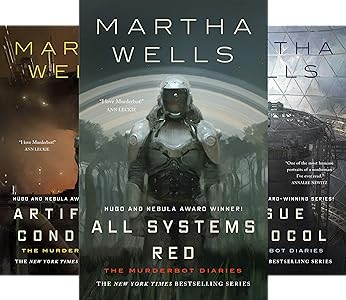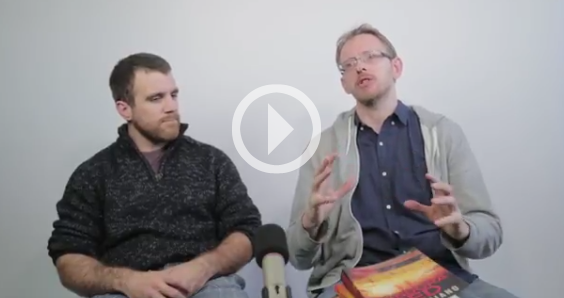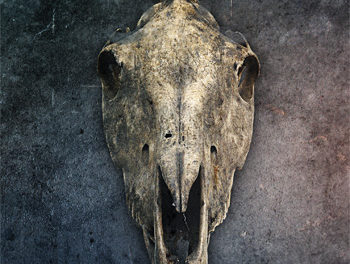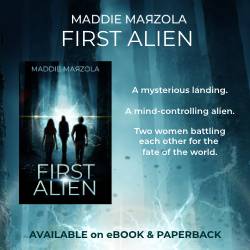Based on the science fiction book series The Murderbot Diaries by Martha Wells, AppleTV+’s Murderbot centers around a killer robot that successfully breaks free from its governing code. Instead of unleashing hell on his owner/enslaver, the robot – called SecUnit (Alexander Skarsgaard) – tries to hide its newly-found sentience instead. But when it is tasked to join a group of researchers on a company-backed expedition to an uncharted planet, blending in becomes much harder as its human companions suspect something amiss with it.
Don’t let the serious facade fool you though, this series is a sci fi comedy through and through. It’s going for a tongue in cheek and goofy tone, starting from SecUnit’s internal narration of everything it observes – usually about the folly of the human crew he’s following.
To be honest, at first, SecUnit’s monologues don’t feel right coming out of Skarsgaard’s droll delivery. It’s no fault of his, though: the script wants him to be narrating every story beat with the whining energy of a 16-year-old.
It’s such an offbeat choice, though you cannot deny that the show is very committed to the bit.
What’s more jarring is when the show tries to infuse some sort of ominous melodrama in the middle of the jokey jokey tone. Two episodes in, the mishmash of tones hasn’t quite gelled together. It feels like a battle of wits between the source material – which by all accounts is decidedly not tongue in cheek – and the creator’s intention to do comedy.
Don’t get me wrong, it CAN work. Galaxy Quest did it, Rick and Morty did it, The Orville did it. It’s not the tonal blend that’s the problem, it’s the navigating of it. Murderbot has not struck the right balance between the two. The serious parts feel silly, while the funny ones are acted with full-on dramatic flair that they border on parody.
The casting of Skarsgaard as a character with a silly, chattery personality takes a little bit of getting used to. He’d proven that he can do darkly funny (see: Succession), but the juvenile humor instilled in his character kinda goes against the cold, intimidating image he has cultivated over the years. Once you get past that, though, the series flows much better.
The big themes of the show revolve around the moral conundrum relevant with our current discourse about AI and bots flooding our lives. In correlation, the dialogues of the show lean toward witty and self aware, unsurprisingly. Too bad, the supporting characters, who are supposed geniuses, are given smart dialogues only when they discuss science. The rest of their personalities vary from either doomsaying or petulant highschoolers. Again, the tonal inconsistency.
Character-wise, David Dastmalchian and Noma Dumezweni’s characters shine the most so far. Oddly enough, Dastmalchian plays the straight man out of a bunch of off-kilter ones for once. And as the resident cynic who suspects SecUnit’s motives, he is surprisingly perfect. As is Dumezweni as the crew’s anxiety-ridden but sympathetic leader.
For an AppleTV+ series, the show has a low budget vibe, bringing to mind old Stargate or CW sci-fi shows of yore. Perhaps, it’s due the half-hour format but it’s highly unusual. Mind you, that in itself is not a bother. After all, we used to get hooked on low budget sci-fi shows with plenty of thrills and hearts in the past. It’s just that everything is so white and beige… and very clean, giving off a very unshakeable set-like vibe that takes you out of the story.
Speaking of the duration, many viewers complain about the 25 minutes duration being too short. However, it actually has quite little to excite in its short runtime. It’s too talky for a space adventure, too bland for a space comedy.
At the very least, you cannot fault the show for being generic, points for originality. Although, the effort in the first two episodes has been subpar.
Review by Jennifer Ariesta
MurderBot is based on a series of books by Martha Wells. Click here to check them out.





![Nano Swarm Part 2 [Snippet]](https://darkparadigm.co/wp-content/uploads/2017/09/nanoswarm_img.jpg)


